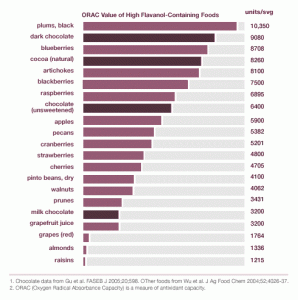By Avance Care’s Registered Dietitian: Kaci Adams, MS, RD, LDN
Chocolate, a sweet treat many American’s rely on not only to satisfy their sweet tooth, but also for comfort, celebrations, and holidays. Therefore, it is not surprising that many are thrilled and eager to learn more when they hear that chocolate may improve heart health. But is chocolate actually beneficial to heart health and if so, to what extent?
First and foremost, it is important to know that not all chocolate is created equal. Dark chocolate is made of cocoa beans, cocoa butter (fat), and minimal sugar. Milk chocolate is composed of cocoa powder (less than dark chocolate), cocoa butter, milk solids, and sugar (more than dark chocolate). And surprisingly, white chocolate is not chocolate at all as it does not contain cocoa powder. White chocolate contains cocoa butter, milk solids, sugar, and other flavorings.
The cocoa bean found in chocolate contains flavonols, a type of flavonoid (antioxidant) found in a variety of foods (Table 1). The amount of flavonols found in chocolate varies greatly, and depends on the genetic component of the plant, the soil it is grown in and the processing method. The higher amount of flavonols in the chocolate, the greater the health benefit.
Flavonols work by protecting cells from oxidation (damage) caused by free radicals. They increase levels of nitric oxide, a natural substance in the body, which acts as a vasodilator to widen and relax blood vessels, increases insulin sensitivity, and slows down hardening of arteries.
The first study suggesting that chocolate may not be unhealthy was published in 1994. Since then, over 100 research and review papers have found a link between chocolate consumption and reduced risk of cardiovascular disease and stroke.
For example, two recent studies found a positive relationship between weekly chocolate consumption and a 22% lower risk of stroke. Furthermore, a prospective study involving 32,000 women found that 1-2 servings of chocolate a week was associated with a 26% lower incidence of heart failure.
However, the jury is still out on the effects chocolate has on heart health as not all research has been positive. For example, a randomized controlled crossover trial in Australia was unable to find a link between consuming 50g of dark chocolate a day and lower blood pressure.
Bottom Line: Chocolate is a better alternative to other sweet treats such as baked goods and hard candies. However, chocolate is a source of excess calories and should be eaten in moderation as part of a healthy diet. Current recommendations suggest limiting chocolate to 1 oz, 2-3 times a week, and choosing dark chocolate with at least 70% cocoa solids to obtain greater heart health benefits. Furthermore, aim to incorporate other healthy, lower calorie sources of flavonols such as: plums, berries, apples, pecans, and artichokes into your diet more often.
Resources:
http://www.health.harvard.edu/healthy-eating/is-chocolate-really-a-health-food
http://www.todaysdietitian.com/newarchives/020612p24.shtml
http://www.clevelandclinicwellness.com/Promos/Pages/Chocolate.aspx

